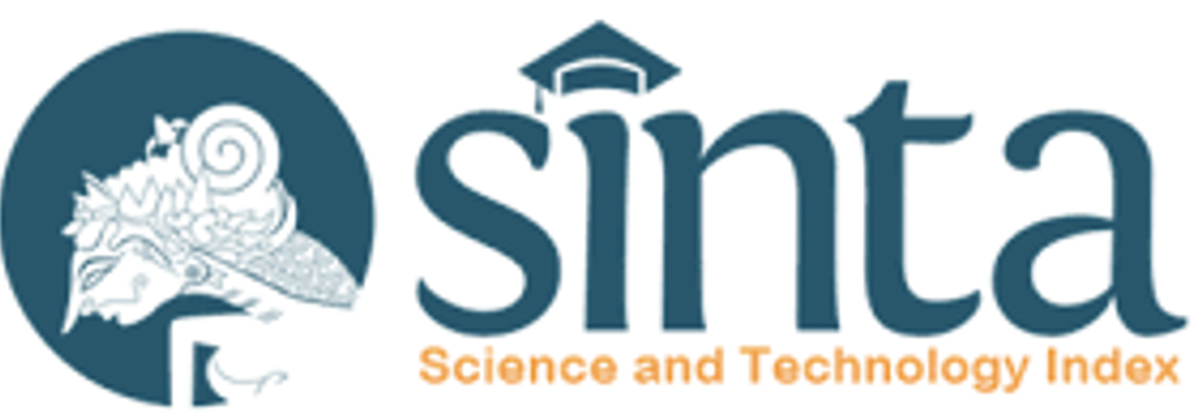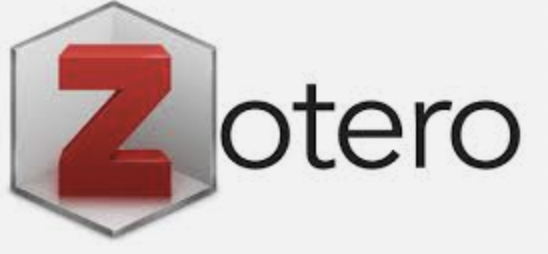Pembelajaran Sosiologi Secara Daring Selama Pandemi Covid-19
DOI:
https://doi.org/10.21067/jppi.v17i2.7462Keywords:
sociology learning, covid-19, pandemicAbstract
This study aims to find out about online sociology learning during the COVID-19
pandemic at SMA N 1 Taebenu. This research was qualitative research that was intended to
deeply understand the effectiveness of online sociology learning during the COVID-19
pandemic. The subjects of this study were students, teachers, and the headmaster. The data
collection used observation, interviews, and documentation. Interactive analysis techniques
include data reduction, data display, and drawing conclusions. The results of research that
implementing online learning during the COVID-19 pandemic was not effective because in
the learning process students and teachers experienced obstacles by teachers experiencing
limitations in the use of learning platform (technology). Then the obstacles experienced by
students were their limitations in facilities such as not having a cellphone, laptop, also not
having an internet package, and being constrained by the internet connection
References
Adedoyin, O. B., & Soykan, E. (2020). Covid-19 pandemic and online learning: the challenges and opportunities. Interactive Learning Environments. https://doi.org/10.1080/10494820.2020.1813180
Almaiah, M. A., Al-Khasawneh, A., & Althunibat, A. (2020). Exploring the critical challenges and factors influencing the E-learning system usage during COVID-19 pandemic. Education and Information Technologies, 25(6), 5261–5280. https://doi.org/10.1007/S10639-020-10219-Y/FIGURES/3
Anjani, F. (2020). Teori Pembelajaran Konstruktivistik dalam Meningkatkan Hasil Belajar Sosiologi di SMA. Sociological Education, 1(1), 34–41. Retrieved from https://e-journal.unmuhkupang.ac.id/index.php/se/article/view/233
Arifin, N. (2022). Pengaruh Daya Juang dan Kemandirian Belajar Secara Online terhadap Tanggung Jawab Belajar Mahasiswa PGSD. Jurnal Basicedu, 6(3), 3268–3278. https://doi.org/10.31004/BASICEDU.V6I3.2244
Aznar-DÃaz, I., Hinojo-Lucena, F. J., Cáceres-Reche, M. P., & Romero-RodrÃguez, J. M. (2020). Pedagogical Approaches in the Knowledge Society: The Flipped Classroom Method for the Development of Creativity and Dialogical Learning. International Journal of Emerging Technologies in Learning, 15(3), 4–14. https://doi.org/10.3991/IJET.V15I03.11664
Bachtiar. (2022). Indonesian High School Students’ Readiness and Attitude toward Online Learning: A Mixed Method Study. EDUKATIF : JURNAL ILMU PENDIDIKAN, 4(3), 3289–3300. https://doi.org/10.31004/EDUKATIF.V4I3.2678
Balawala, P. G., & Idris. (2021). The Meaning of Sociologiy Learning With A Two Stray Type Cooperative Model. Sociological Education, 2(2), 7–12. Retrieved from https://e-journal.unmuhkupang.ac.id/index.php/se/article/view/484
Baticulon, R. E., Sy, J. J., Alberto, N. R. I., Baron, M. B. C., Mabulay, R. E. C., Rizada, L. G. T., … Reyes, J. C. B. (2021). Barriers to Online Learning in the Time of COVID-19: A National Survey of Medical Students in the Philippines. Medical Science Educator, 31(2), 615–626. https://doi.org/10.1007/S40670-021-01231-Z/TABLES/3
Chiu, T. K. F. (2021). Applying the self-determination theory (SDT) to explain student engagement in online learning during the COVID-19 pandemic. Journal of Research on Technology in Education, 54(S1), S14–S30. https://doi.org/10.1080/15391523.2021.1891998
Chiu, T. K. F., Lin, T. J., & Lonka, K. (2021). Motivating Online Learning: The Challenges of COVID-19 and Beyond. The Asia-Pacific Education Researcher 2021 30:3, 30(3), 187–190. https://doi.org/10.1007/S40299-021-00566-W
Clark, A. E., Nong, H., Zhu, H., & Zhu, R. (2021). Compensating for academic loss: Online learning and student performance during the COVID-19 pandemic. China Economic Review, 68, 101629. https://doi.org/10.1016/J.CHIECO.2021.101629
Dhawan, S. (2020). Online Learning: A Panacea in the Time of COVID-19 Crisis: Journal of Educational Technology Systems, 49(1), 5–22. https://doi.org/10.1177/0047239520934018
Djehalut, N. S., Kiko, B., Nurdin, N., & Syahrul, S. (2022). Peran Ibu Rumah Tangga sebagai Pendamping Belajar Anak di Masa Pandemik Covid 19 di Kota Kupang. Ideas: Jurnal Pendidikan, Sosial, Dan Budaya, 8(3), 1013–1020. https://doi.org/10.32884/IDEAS.V8I3.936
Gillis, A., & Krull, L. M. (2020). COVID-19 Remote Learning Transition in Spring 2020: Class Structures, Student Perceptions, and Inequality in College Courses. Teaching Sociology, 48(4), 283–299. https://doi.org/10.1177/0092055X20954263
Hussein, E., Daoud, S., Alrabaiah, H., & Badawi, R. (2020). Exploring undergraduate students’ attitudes towards emergency online learning during COVID-19: A case from the UAE. Children and Youth Services Review, 119, 105699. https://doi.org/10.1016/J.CHILDYOUTH.2020.105699
Jamilah, E. S. (2022). Penerimaan Ibu dan Pendampigannya pada Anak Down Syndrome pada Pandemi Covid-19. Jurnal Basicedu, 6(2), 1598–1609. https://doi.org/10.31004/BASICEDU.V6I2.2161
Lemay, D. J., Bazelais, P., & Doleck, T. (2021). Transition to online learning during the COVID-19 pandemic. Computers in Human Behavior Reports, 4, 100130. https://doi.org/10.1016/J.CHBR.2021.100130
Maqableh, M., & Alia, M. (2021). Evaluation online learning of undergraduate students under lockdown amidst COVID-19 Pandemic: The online learning experience and students’ satisfaction. Children and Youth Services Review, 128, 106160. https://doi.org/10.1016/J.CHILDYOUTH.2021.106160
Maswi, R., Syahrul, Arifin, & Datuk, A. (2022). Teori Konstruktivisme dalam Pembelajaran Sosiologi di Madrasah Aliyah Al-Hikmah Bahri Ternate Kabupaten Alor. EDUKATIF: Jurnal Ilmu Pendidikan, 4(2), 2395–2402. https://doi.org/10.31004/EDUKATIF.V4I2.2459
O’Connor, K. (2020). Constructivism, curriculum and the knowledge question: tensions and challenges for higher education. Studies in Higher Education, 47(2), 412–422. https://doi.org/10.1080/03075079.2020.1750585
Patricia Aguilera-Hermida, A. (2020). College students’ use and acceptance of emergency online learning due to COVID-19. International Journal of Educational Research Open, 1, 100011. https://doi.org/10.1016/J.IJEDRO.2020.100011
Samsudin, M. D. I. (2016). Pengaruh Pembelajaran Model Observasi Lapangan (Outdoor Study) dan Pembelajaran Inquiry Terhadap Hasil Belajar Mata Pelajaran Sosiologi Siswa IPS SMA Negeri 3 Probolinggo. Jurnal Penelitian Dan Pendidikan IPS, 10(2), 261–276. Retrieved from https://ejournal.unikama.ac.id/index.php/JPPI/article/view/1720
Suhartono, S., Susiani, T. S., Ngatman, N., Salimi, M., & Hidayah, R. (2022). Analisis Pembelajaran Bahasa Indonesia di Sekolah Dasar pada Masa Pandemi. Jurnal Basicedu, 6(2), 1637–1644. https://doi.org/10.31004/BASICEDU.V6I2.2172
Syahrul, Arifin, & Datuk, A. (2021). The dilemma of Timorese education in the COVID-19 pandemic. Educational Innovation in Society 5.0 Era: Challenges and Opportunities, 151–156. https://doi.org/10.1201/9781003206019-28
Syahrul, S., & Arifin, A. (2018). Kebijakan Pendidikan Multikultural pada Peserta Didik Non-Islam di Sekolah Muhammadiyah Kota Kupang. Jurnal Pancasila Dan Kewarganegaraan, 3(2), 1–9. https://doi.org/10.24269/jpk.v3.n2.2018.pp1-9
Syahrul, S., & Datuk, A. (2020). Social Behavior of the Children of Newspaper Sellers in Kupang City to Defend Existential at School. NUANSA: Jurnal Penelitian Ilmu Sosial Dan Keagamaan Islam, 17(2), 180. https://doi.org/10.19105/nuansa.v17i2.3299
Syahrul, S., & Kibtiyah, M. (2020). Problematika Pendidikan Anak Jalanan : (Studi Anak Penjual Koran di Kota Kupang). Jurnal Basicedu, 4(4), 1336–1349. https://doi.org/10.31004/basicedu.v4i4.531
Syahrul, S., & Wardana, A. (2018). Analisis kebijakan pendidikan untuk anak jalanan di Kota Yogyakarta. Harmoni Sosial: Jurnal Pendidikan IPS, 4(2), 117–130. https://doi.org/10.21831/hsjpi.v4i2.10388
Tkachuk, V., Yechkalo, Y., Semerikov, S., Kislova, M., & Hladyr, Y. (2021). Using Mobile ICT for Online Learning During COVID-19 Lockdown. Communications in Computer and Information Science, 1308, 46–67. https://doi.org/10.1007/978-3-030-77592-6_3/COVER
Widyaningsih, S. (2022). Peran Kepemimpinan Kepala Sekolah, Motiva si Guru Dan Dukungan Orang Tua Pada PJJ Masa Pandemi Covid 19. Jurnal Penelitian Dan Pendidikan IPS, 16(1), 1–9. https://doi.org/10.21067/JPPI.V16I1.6968
Wilson, W., Natuna, D. A., & Haikal, R. (2022). The Role of Parents in Guiding Children in the Implementation of Online Learning During the Covid-19 Pandemic at Yapim Siak Hulu Private Vocational School. EDUKATIF : JURNAL ILMU PENDIDIKAN, 4(3), 3535–3544. https://doi.org/10.31004/EDUKATIF.V4I3.2587
Yates, A., Starkey, L., Egerton, B., & Flueggen, F. (2020). High school students’ experience of online learning during Covid-19: the influence of technology and pedagogy. Technology, Pedagogy and Education, 30(1), 59–73. https://doi.org/10.1080/1475939X.2020.1854337
Yu, Z. (2021). The effects of gender, educational level, and personality on online learning outcomes during the COVID-19 pandemic. International Journal of Educational Technology in Higher Education, 18(1), 1–17. https://doi.org/10.1186/S41239-021-00252-3/TABLES/4
Zahrawati, F., & Nurhayati, N. (2021). The Challenge of Online Learning in Curriculum-2013 During COVID-19 Pandemic: Study of Social Science Teachers at MAN 2 Parepare. Sociological Education, 2(1), 9–14. Retrieved from https://e-journal.unmuhkupang.ac.id/index.php/se/article/view/380












